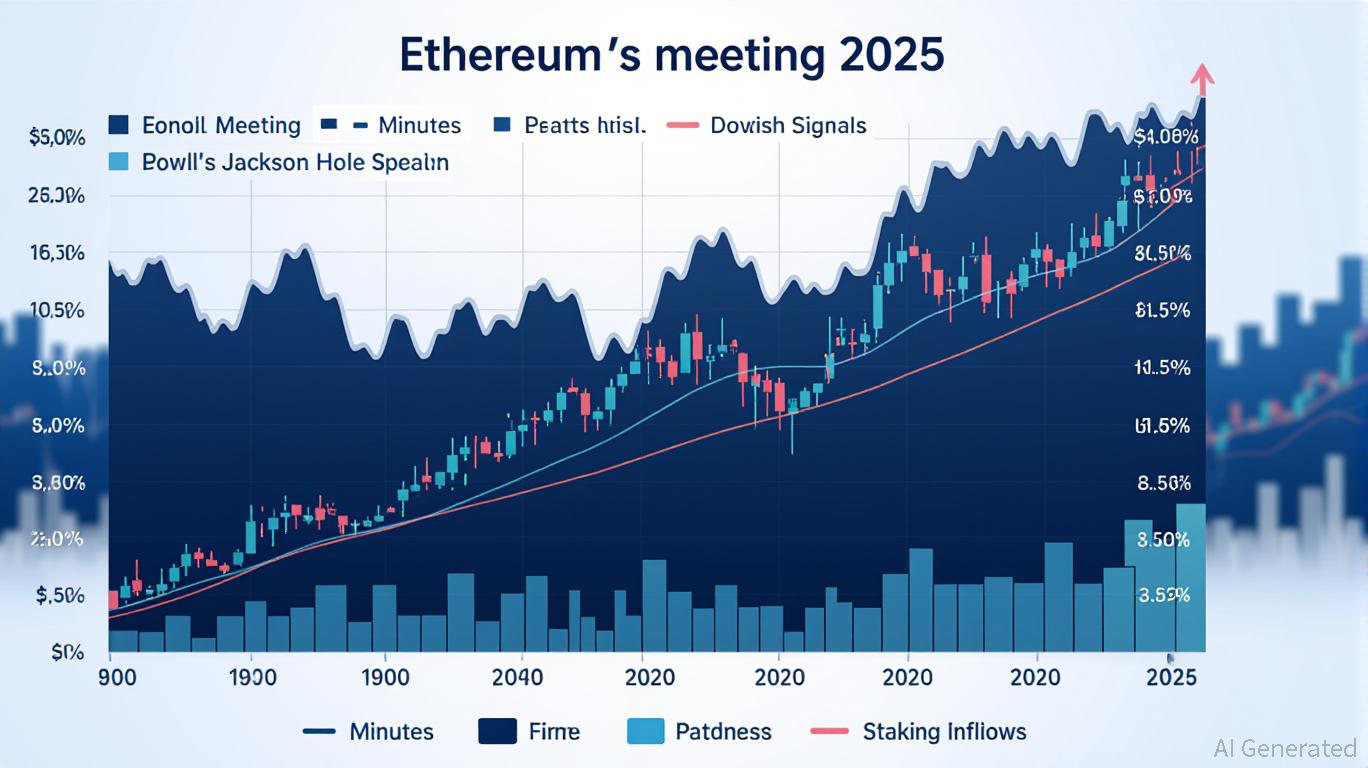Solana News Today: Solana’s Validators Race to Approve Near-Instant Finality Revolution
- Solana validators are voting on the Alpenglow upgrade, a historic consensus overhaul aiming to reduce block finality from 12.8 seconds to 150 milliseconds via off-chain validation. - The upgrade introduces a "20+20" resilience model and removes fixed voting costs, promoting decentralization by eliminating stake-based penalties for validators. - If approved, Alpenglow could enhance Solana's competitiveness in high-performance sectors like DeFi and gaming while aligning with industry trends toward faster,
Solana’s validator community has entered the final stretch of the voting process for the Alpenglow consensus upgrade, a proposal widely regarded as one of the most significant in the network’s history. The governance initiative, known as SIMD-0326, commenced voting on August 27 and will conclude by the end of the third epoch, giving validators a week to participate. According to current data, nearly 172 validators—representing about 11.8% of the network—have already cast their votes, with over 99% of those supporting the proposal [1]. Solana Labs co-founder Anatoly Yakovenko has publicly encouraged validators to cast their votes, emphasizing the importance of ensuring the upgrade’s passage [2].
Alpenglow represents a major overhaul of Solana’s existing consensus mechanisms, which rely on Proof-of-History (PoH) and TowerBFT. These systems facilitate block ordering and validation without the need for full synchronization, but they come with limitations in speed and efficiency. The new design aims to replace PoH and TowerBFT with two novel components: Votor and Rotor. Votor is designed to drastically reduce block finality times—from the current 12.8 seconds to as little as 150 milliseconds—by shifting most of the validation process off-chain. Rotor, meanwhile, will optimize block propagation, reducing redundant data transfers between nodes and improving network efficiency [2]. This shift is expected to allow Solana to maintain performance under high transaction volumes, supporting applications in DeFi, gaming, and other latency-sensitive sectors [1].
A key feature of the upgrade is the implementation of a “20+20” resilience model, ensuring the chain remains operational even if 20% of validators are malicious and another 20% are offline. This level of fault tolerance is rare among Layer-1 blockchains and is intended to enhance both security and decentralization. Unlike traditional consensus models that penalize large validators for their influence, Alpenglow introduces a fairer economic model by removing fixed voting costs. Validators will no longer be penalized for their stake size when submitting votes, thereby incentivizing participation from both large and small entities [2]. This shift is expected to reduce centralization pressures and promote a more equitable distribution of validation responsibilities [3].
The upgrade also carries significant implications for Solana’s economic model. Current validators pay a fixed cost for each vote, which disproportionately benefits larger stakeholders and creates a barrier for smaller validators. Alpenglow aims to eliminate this imbalance by introducing a more efficient voting framework and reducing the overhead of on-chain transactions. The result is a system where validator rewards are proportional to their stake, but only if they actively participate in the consensus process. Validators who fail to vote or submit conflicting votes will be penalized, either by losing their rewards or being removed from the validator set. This mechanism is intended to maintain network integrity while encouraging widespread participation [1].
If approved, the Alpenglow upgrade could reshape Solana’s position within the broader blockchain ecosystem. By drastically reducing transaction finality times and increasing resilience, the network may attract more developers and institutional users who require high performance and low latency. The improvements also align with broader industry trends, such as the push for faster, more scalable consensus models. While Ethereum has begun focusing on interoperability, Solana’s strategy remains centered on optimizing speed and efficiency. Analysts suggest that if the upgrade passes with sufficient support—requiring at least 33% of validators to vote—the network could see renewed interest from both developers and investors [1].
The next few days will be critical in determining whether Alpenglow receives the necessary approval to proceed. With only a small fraction of eligible validators having cast their votes, there is still time for participation to rise. The final decision will be made by the end of the third epoch, with the outcome potentially influencing the direction of Solana’s development for the next year. If successful, the upgrade will mark a pivotal moment in the network’s evolution and could contribute to broader momentum in the Solana ecosystem [2].
Source:
Disclaimer: The content of this article solely reflects the author's opinion and does not represent the platform in any capacity. This article is not intended to serve as a reference for making investment decisions.
You may also like
Bitcoin Treasuries: The Quiet Revolution Reshaping Global Capital Flows
- Bitcoin is emerging as a strategic reserve asset, challenging U.S. Treasuries and gold as institutional investors adopt BTC treasuries. - Over 180 companies, including MicroStrategy and DDC Enterprise, now hold Bitcoin, leveraging its capped supply and low asset correlation. - The 2025 BITCOIN Act and spot ETF approvals normalized Bitcoin investments, driving $132.5B inflows and reshaping capital preservation strategies. - Bitcoin's 375.5% 2023-2025 return outperformed traditional assets, but volatility

Solana News Today: "Solana Surpasses Ethereum in Speed, Cost, and DeFi Momentum"
- Solana (SOL) surges 17% in 7 days, outperforming Ethereum’s 6% gain, with $199.36 price and $108.4B market cap. - Solana processes 101M daily transactions at $0.0003 fees, dwarfing Ethereum’s 1.68M transactions and $4.02 average cost. - Network upgrades like Block Assembly Marketplace and DoubleZero fiber push 100K TPS, while DeFi TVL hits $8.6B with 3M daily active addresses. - Ethereum maintains medium-term appeal via PoS transition, Layer 2 scalability, and $4.6B ETF inflows despite Solana’s speed and

Why SYC Outperforms XRP and DOGE in 2025: A Deep Dive into Presale Strategy and Utility-Driven Growth
- Smart Yield Coin (SYC) outperforms XRP and DOGE in 2025 through structured presales, institutional validation, and utility-driven innovations like AI gas fee predictions and passive income tools. - XRP relies on ETF inflows and cross-border payments but lacks smart contract capabilities, while DOGE's meme-driven model faces sustainability issues due to infinite supply and no programmable features. - SYC's deflationary tokenomics, regulatory compliance, and real-world ecosystem create a closed-loop econom

Ethereum's Volatility Amid FOMC Uncertainty: A Strategic Buying Opportunity?
- Ethereum's 2025 price swings mirrored Fed policy shifts, with hawkish FOMC minutes triggering sell-offs and Powell's dovish Jackson Hole comments spurring a 12% rebound to $4,885. - On-chain resilience emerged as ETH transaction volumes rose 43.83% YoY, driven by Layer 2 solutions and plummeting gas fees post-Dencun/Pectra upgrades. - Institutional adoption accelerated as Ethereum ETFs attracted $27.6B in inflows, outpacing Bitcoin, while 35.5M ETH (29.4% supply) was staked post-Pectra upgrade. - Whale a
